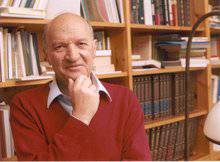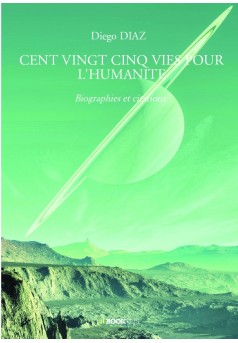09/10/2013
Domenico Losurdo « Le libéralisme, ennemi le plus acharné du droit à vivre à l’abri »
 Philosophe, historien et militant communiste, l’Italien Domenico Losurdo travaille depuis plusieurs années sur l’histoire du libéralisme afin de repenser un processus d’émancipation.
Philosophe, historien et militant communiste, l’Italien Domenico Losurdo travaille depuis plusieurs années sur l’histoire du libéralisme afin de repenser un processus d’émancipation.
« En tant que communiste, mais pas seulement, en tant que philosophe et historien, je vais combattre, continuer à combattre l’idéologie dominante. Parce que l’idéologie dominante, c’est une manipulation de l’histoire qui est un obstacle au processus d’émancipation. Et de l’autre côté, nous devons repenser le processus d’émancipation » lançait Domenico Losurdo, en 2007, au village du livre de la Fête de l’Humanité, invité pour la première fois par la Fondation Gabriel-Péri.
Professeur à l’université d’Urbino, en Italie, Domenico Losurdo est spécialiste des philosophes Hegel, auquel il consacre deux livres traduits en français (Hegel et les libéraux, PUF, Paris, 1992 et Hegel et la catastrophe allemande, Albin Michel, Paris, 1994), et Gramsci (Gramsci. Du libéralisme au communisme critique, Syllepse, Paris, 2006). Losurdo n’est pas un intellectuel médiatique mais un intellectuel fondamental pour penser le libéralisme, le communisme et son combat émancipateur.
Après s’être consacré à l’histoire politique de la philosophie classique allemande de Kant à Marx en passant par Heidegger et Nietzsche, il a ensuite travaillé sur l’histoire politique du libéralisme (Contre-histoire du libéralisme, la Découverte. 2013). Il a aussi, notamment, écrit (ouvrages parus en français) le Révisionnisme en histoire (Albin Michel, Paris, 2006), le Péché originel du XXe siècle (Aden, 2007), Fuir l’Histoire (Éditions Delga et Le Temps des cerises, 2007) et Staline : histoire et critique d’une légende noire (Aden, 2011).
Dans votre livre Contre-histoire du libéralisme (1), vous déconstruisez l’idéologie néolibérale en tant que synonyme de démocratie et de défense des libertés en opposition aux totalitarismes… Pourquoi vous a-t-il semblé urgent, aujourd’hui, d’analyser et de dénoncer cette approche du libéralisme ?
Domenico Losurdo. Pour promouvoir son expansion, tout empire a besoin d’un mythe généalogique, mythe qui célèbre et transfigure ses origines et son histoire et qui ainsi invite les adversaires déclarés ou potentiels à s’incliner devant une force morale et politique supérieure.
Selon la légende savamment cultivée par l’Empire romain, Rome avait une origine non seulement royale mais aussi divine : au terme d’un parcours épique, elle aurait été fondée par le pieux Enée, qui avait fui Troie en flammes et qui était le fils d’Anchise (cousin du roi de Troie) et de la déesse Vénus.
Le mythe généalogique de l’actuel empire américain n’est guère différent : fuyant l’Europe intolérante et despotique, les pères pèlerins auraient rejoint le Nouveau Monde pour ériger un monument éternel à la liberté puis pour fonder les États-Unis, la démocratie la plus ancienne qui ait jamais existé…
Mon livre montre au contraire une histoire complètement différente : les colonies anglaises en Amérique puis les États-Unis ont vu s’affirmer la forme la plus radicale d’esclavage et la plus totale déshumanisation de l’esclave ; dans les premières décennies de vie du pays nouvellement fondé, ce sont presque toujours des propriétaires d’esclaves qui ont occupé le poste de président, et ils ont cherché à bloquer l’émancipation des esclaves de Saint-Domingue et Haïti, ils ont exporté l’esclavage au Texas, arraché au Mexique, etc.
C’est une histoire qui a duré longtemps. Il suffit de rappeler que, dans les années 1930, la persécution des Noirs dans le sud des États-Unis faisait penser – comme l’écrivent des chercheurs états-uniens notables – à la persécution contre les juifs en acte dans le IIIe Reich. Sans parler de l’extermination des Peaux-Rouges et des pratiques génocidaires qui ont caractérisé le colonialisme occidental dans son ensemble.
En quoi justement, au cours de l’histoire, l’idéologie libérale légitime-t-elle des formes de domination ? Selon vos termes, le libéralisme est une démocratie uniquement valable pour le « peuple des seigneurs »…
Domenico Losurdo. Aujourd’hui, la situation est différente. Le cycle qui va de la révolution jacobine à la révolution bolchevique a remis radicalement en question l’oppression coloniale et celle aux dépens des peuples d’origine coloniale. Néanmoins… de nos jours, on parle souvent d’Israël comme de la seule vraie démocratie au Moyen-Orient.
Le revers de la médaille est cependant que les Palestiniens peuvent être arrêtés, torturés, soumis à des exécutions extrajudiciaires, sans procès. C’est vraiment la « démocratie pour le peuple des seigneurs » ! Au niveau planétaire, l’Occident s’attribue le droit souverain de déclencher des guerres même sans l’autorisation du Conseil de sécurité de l’ONU ; souvent, les présidents états-uniens définissent leur pays comme la « nation élue » de Dieu ayant pour mission de guider le monde : la « démocratie pour le peuple des seigneurs » a toujours de beaux jours devant elle.
Il faut ajouter que le libéralisme ignore le lien entre économie et politique, dont étaient conscients des philosophes comme Rousseau et Hegel. Ce dernier, en particulier, a bien montré que celui qui risque de mourir de faim est en réalité soumis à une condition semblable à celle de l’esclave.
Certains se plaisent à faire l’amalgame entre nazisme et communisme, sous le couvert des totalitarismes… Comment analysez-vous ce concept de totalitarisme ?
Domenico Losurdo. Le « totalitarisme » plonge ses racines dans la « mobilisation totale » et dans la « guerre totale », dans l’enrégimentement total de la population provoqué par les grandes puissances capitalistes et par leur compétition pour la conquête des colonies et l’hégémonie mondiale. Hitler aspirait à la revanche, à la récupération et à l’élargissement de « l’espace vital » et colonial de l’Allemagne.
Il s’est voulu l’héritier de la tradition coloniale, pour la radicaliser, en se réclamant en premier lieu de l’exemple des États-Unis, en cherchant son Far West en Europe orientale et en réduisant les Slaves à la condition d’esclaves au service de la « race des seigneurs ».
Ce n’est pas un hasard si ce projet a connu sa défaite décisive à Stalingrad et si cette défaite constitue en même temps le début d’une gigantesque vague de révolutions anticoloniales. Pour se rendre compte du caractère arbitraire de l’approche de l’idéologie dominante, on peut faire une comparaison. Au début du XIXe siècle, Napoléon envoie une puissante armée à Saint-Domingue, avec pour tâche de rétablir l’esclavage, après son abolition grâce à la grande révolution noire menée par Toussaint Louverture.
On peut bien dire que, dans la guerre qui a fait rage, les agressés n’ont pas été moins « sauvages » que les agresseurs, mais l’on se couvrirait de ridicule en voulant assimiler les uns et les autres sous la catégorie de « sauvagerie » ou de « totalitarisme » sanguinaire.
Dans votre dernier livre, la Lotta di classe. Una storia politica e filosofica (la Lutte de classe. Une histoire politique et philosophique) (2), qui n’est pas encore paru en France, vous vous intéressez au concept de luttes de classes, central dans la philosophie de Marx et Engels. En quoi peut-il nous permettre de mieux analyser, comprendre et agir dans la société ?
Domenico Losurdo. Pour Marx et Engels, la lutte des classes a pour objet la division du travail au niveau international, au niveau national et dans le cadre de la famille. Les peuples qui secouent le joug colonial, les classes subalternes qui luttent contre l’exploitation capitaliste et les femmes qui refusent « l’esclavage domestique » auquel les soumet la famille patriarcale sont les acteurs des luttes des classes émancipatrices.
À la lumière de cela, les guerres de libération et de résistance nationale menées par le peuple chinois et par le peuple soviétique respectivement contre l’empire du Soleil-Levant et contre le IIIe Reich qui voulaient les assujettir, voire les réduire en esclavage, sont de grandioses luttes de classes. Et de nos jours, la lutte des pays et des peuples (pensons en particulier à la Chine) qui veulent en finir avec le monopole occidental de la haute technologie et qui refusent d’être cantonnés dans des segments inférieurs du marché international du travail, doit être considérée elle aussi comme une lutte des classes.
En tant que philosophe et historien communiste, vous dites que l’idéologie dominante est une manipulation de l’histoire et constitue un obstacle au processus d’émancipation. Comment repenser ce processus d’émancipation aujourd’hui ? Selon vous, qu’est devenue la perspective communiste en Europe et dans le monde ?
Domenico Losurdo. Il faut s’engager sur les trois fronts de la lutte des classes. Je voudrais en particulier attirer l’attention sur un point souvent négligé. Non seulement l’on n’est pas socialiste, mais l’on n’est pas non plus démocrate si l’on ne mène pas une lutte pour la démocratie dans les rapports internationaux. La prétention d’un groupe de pays à se présenter comme des nations élues ayant le droit de déclencher des guerres ou de menacer de guerre sans l’autorisation du Conseil de sécurité de l’ONU est une manifestation de colonialisme ou de néocolonialisme, et doit être contestée jusqu’au bout.
En ce qui concerne la perspective stratégique, devons-nous nous représenter le communisme comme la disparition totale non seulement des antagonismes de classes, mais également de l’État et du pouvoir politique, sans parler des religions, des nations, de la division du travail, du marché, de toute source possible de conflit ?
En remettant en question le mythe de l’extinction de l’État et de sa réabsorption dans la société civile, Gramsci a fait remarquer que la société civile elle-même est une forme d’État. Il a également souligné que l’internationalisme n’a rien à voir avec la méconnaissance des identités nationales, qui continuent à subsister bien après l’effondrement du capitalisme. Quant au marché, Gramsci pense qu’il vaudrait mieux parler de « marché déterminé » plutôt que de marché dans l’abstraction. Gramsci nous aide à dépasser le messianisme qui nuit gravement à la construction de la société postcapitaliste.
Quelle est votre analyse du modèle chinois, qui mélange l’économie de marché et la perspective socialiste ?
Domenico Losurdo. La République populaire chinoise est issue de la plus grande révolution anticoloniale de l’histoire, et une révolution anticoloniale réussit réellement si elle ajoute à la conquête de l’indépendance politique la conquête de l’indépendance économique. Sur ce plan, il y a une continuité entre Mao Tsé-toung et Deng Xiaoping.
Ce dernier a introduit le nouveau cours à partir de deux considérations. D’abord, l’appel à l’esprit de sacrifice des révolutionnaires et donc le recours aux incitations morales ne peuvent réussir que dans les moments d’enthousiasme politique particulier ; dans la longue période, il est impossible de développer les forces productives (et de combattre la misère) sans incitations économiques et donc sans compétition et sans marché.
Ensuite, au moment de la crise puis de l’effondrement de l’URSS, l’Occident détenait de fait le monopole de la haute technologie, et il était impossible pour la Chine d’accéder à cette haute technologie sans s’ouvrir au marché international. Grâce également aux conquêtes réalisées dès l’époque maoïste (diffusion massive de l’instruction, éradication des maladies infectieuses, etc.), le nouveau cours, malgré des contradictions criantes, peut se vanter d’un succès incroyable : 600 millions ou, selon d’autres calculs, 660 millions de personnes libérées de la misère ; des infrastructures dignes du « premier monde » ; extension du processus d’industrialisation des aires côtières à celles de l’intérieur ; augmentation rapide, depuis quelques années, des salaires et attention croissante envers la question écologique.
En insistant sur la centralité de la conquête, de la sauvegarde de l’indépendance et de la souveraineté nationale, et en poussant les anciennes colonies à conquérir leur indépendance également sur le plan économique, la Chine est aujourd’hui, de fait, le centre de la révolution anticoloniale (qui a commencé au XXe siècle et est encore en cours sous des formes nouvelles aujourd’hui). En rappelant le rôle central de la sphère publique dans l’économie, la Chine constitue une alternative également par rapport au « consensus de Washington » et au libéralisme économique.
Face aux politiques d’austérité en Europe, comment concevez-vous les alternatives et les formes de processus d’émancipation ?
Domenico Losurdo. Les luttes contre le démantèlement de l’État social et contre la politique belliciste ne peuvent pas ne pas jouer un rôle central. Au cours de la Seconde Guerre mondiale, à côté des libertés traditionnelles de la tradition libérale, le démocrate F. D. Roosevelt a théorisé également le droit à vivre « à l’abri du besoin » (freedom from want) et « à l’abri de la peur » (freedom from fear). Le libéralisme économique du « consensus de Washington » est l’ennemi le plus acharné du droit à vivre « à l’abri du besoin ». Pour ce qui concerne le droit à vivre « à l’abri de la peur », il est nié tous les jours par la politique de guerre, de menaces de guerre et de recours aux drones d’Obama.
(1) Contre-histoire du libéralisme, Éditions la Découverte.
(2) La Lotta di classe. Una storia politica e filosofica, Éditions Laterza, Italie.
Entretien réalisé par Anna Musso pour l'Humanité
Domenico Losurdo, ‘Liberalism; the fiercest enemy to our right to live free from want’.
Translated Wednesday 11 September 2013, by Julian Jones
 Italian philosopher, historian and militant communist, Domenico Losurdo has been working for several years on the history of liberalism in order to rethink the process of emancipation.
Italian philosopher, historian and militant communist, Domenico Losurdo has been working for several years on the history of liberalism in order to rethink the process of emancipation.
‘As a communist, but not exclusively, and as a philosopher and historian, I aim to continue combatting the dominant ideology of our time. This is because the dominant ideology is a manipulation of history, an obstacle to the process of emancipation. By the same measure, we must also rethink our fight for emancipation’, proclaimed Domenico Losurdo in 2007 at the Fete de l’humanité book fair, to which he was invited for the first time by the Gabriel-Péri Foundation. Professor at the university of Urbino in Italy, Domenico Losurdo is a specialist in the philosophy of Hegel, having written two books on the subject translated into French (Hegel and the liberals, PUF, Paris, 1992 and Hegel and the German Catastrophe, Albin Michel, Paris, 1994), as well as another on Gramsci (Gramsci. From Liberalism to Critical Communism, Syllepse, Paris, 2006).
Losurdo is no media intellectual, but a fundamentally important academic on the subject of liberalism, its relationship with communism and its emancipatory fight. Having devoted himself to a political history of classical German philosophy from Kant to Marx, passing through Heidegger and Nietzsche, he has since worked on a political history of liberalism (Liberalism: A Counter-History, la Découverte, 2003). He has notably also written several more works, of which the ones published in French include ’Revisionism in History’ ( Albin Michel 2006), ‘The Original 20th Century Sin’ (Aden, 2007), ’A Flight from History’ (Delga, 2007), and ‘Stalin: A History and Critique of a Dark Legend’ (Aden 2011).
In your book ‘Liberalism: A Counter-History’ [1], you deconstruct neo-liberal ideology and the way it is equated with democracy and liberty in opposition to ‘totalitarianism’. Why did it seem to you an urgent task to analyse and denounce this approach to liberalism?
Domenico Losurdo. In order to promote its expansion, each empire needs a genealogical myth which celebrates and transfigures its origins and history, and which invites its enemies (or potential enemies) to bow down to a moral force and to a political superiority. According to the legend wisely created by the Roman Empire, Rome had not only royal, but divine origins too: according to its epic history Rome was founded by the pious Aeneas who had left Troy in flames and was son of the goddess Venus and of Anchises - cousin of the King of Troy.
The genealogical myth of the modern US empire hardly differs: having fled an intolerant and despotic Europe, the founding fathers joined the New World in order to erect an eternal monument to liberty in the shape of the United States, supposedly the oldest living democracy... My book on the contrary shows a completely different history: English colonies in America followed by the United States saw the formation of the most extreme form of slavery and a total dehumanisation of slaves.
In the first few decades of life on the newly founded country, it was almost always slave owners who occupied the post of President, and they sought to block the emancipation of slaves in Saint-Domingo and in Haiti, as well as exporting slavery to Texas and annexing Mexico, amongst other crimes. It’s a shameful history which lasted a long time. It suffises to recount (as many notable US scholars do) how in the 1930s, the persecution of blacks in the south of the USA was comparable to the persecution of Jews under the Third Reich. All this without mentioning the extermination of Red Indians and the genocidal practices which characterised western colonialism in its entirety.
In which ways exactly has liberal ideology legitimised different forms of oppression throughout history? In your own terms, liberalism is a democracy fit only for ‘the ruling class’...
D.L. These days the situation is different. The cycle which started with the Jacobin revolution and ended with the Bolshevik Revolution radically put to the fore the question of colonial oppression at the expense of peoples of colonial origin. Nevertheless, Israel is talked about as the only ‘real’ democracy in the Middle East. The other side of the coin is that Palestinians can be arrested, tortured, and subjected to extra-judicial executions without trial. It really is a ‘democracy fit for the ruling class’!
On a global level, the west assigns itself the sovereign right to start wars without even the sole permission of the UN Security Council; US Presidents often self-define their country as ‘God’s chosen nation’, with a right to guide the world. This ‘democracy fit for the ruling class’ unfortunately seems to have a rosy future.
It must be added that liberalism ignores the link between economics and politics, of which philosophers such as Hegel and Rousseau were well aware. Hegel, in particular, showed us how someone who is at risk of dying of starvation is in reality subject to a social status comparable to that of a slave.
Some people take a great pleasure from making the comparison between nazism annd communism... How would you analyse this concept of totalitarianism?
D.L. Totalitarianism has it’s roots in theories of ‘total mobilisation’ and ‘total war’, in an enlistment of the whole population as provoked by the great capitalist powers and their competition for the conquest of colonies and global hegemony. Hitler aspired to avenge Germany, to recuperate and enlarge its ‘living (and colonial) space’.
He believed himself to be the inheritor of a colonial tradition, wanting to radicalise it, invoking primarily the example of the USA, and seeking to establish his ‘Far West’ in eastern Europe and reducing Slavonic people to a condition of slaves serving the ‘master race’. It’s no coincidence that this project came to its decisive defeat at Stalingrad, and that this same defeat constituted the start of a gigantic wave of anti-colonial revolutions.
To demonstrate the wholly arbitrary character of the dominant ideology we can make the following comparison: at the start of the 19th Century, Napoleon sent a powerful army to Saint Domingo with the aim of re-establishing slavery following its abolition by to the great black revolution led by Toussaint Louverture. Here we can safely say that in the subsequent horrendous war, the attacked weren’t anymore ‘savage’ than the aggressors, but it would seem ridiculous to accuse one side or the other of being under the category of ‘savagery’ or bloody ‘totalitarianism’.
In your latest book, ‘La Lotta di classe. Una storia politica e filosofica’ (Class Warfare, A Political History and Philosophy) [2], not yet published in French, you focus on a concept which is central to the philosophy of Marx and Engels - class warfare. In which ways can this concept help us to analyse, understand and act within our society?
D.L. According to Marx and Engels, class warfare has as its aim the division of work at an international level, at a national level and in the institution of the family. It is the people who upset the colonial order; the subaltern classes who fight against capitalist exploitation and the women who refuse to be ‘domestic slaves’ to which the patriarchal family submits them to who are on the frontline the struggle of the emancipatory classes.
In light of this, the wars of liberation and national resistance led by the Chinese people and the Soviet peoples against the Empire of the Rising Sun and the Third Reich respectively, which wanted to subjugate or even reduce them to slaves, can be considered as spectacular victories of class-warfare. What’s more, the struggle of countries and of peoples who want to see an end to the western monopolisation of high technology (let’s think of China, in particular) and who refuse to be confined to inferior segments of the international work market, should also be considered as class warfare.
As a philosopher and as a communist historian, you affirm that the dominant ideology is a manipulation of history and that it constitutes an obstacle to the fight for emancipation. How do we re-think this fight for emancipation today? In your view, what has become the communist perspective in Europe and in the rest of the world?
D.L. It is necessary to engage on the three main pillars of class warfare. I’d like to draw attention to a point which is often ignored. Not only is it impossible to be a socialist but it is impossible to be a democrat if we don’t fight for democracy with regard to international relations.
The claim by a small group of countries to present themselves as chosen nations with the right to start wars or even threaten to start wars without the authorisation from the UN Security Council is a manifestation of colonialism or of neo-colonialism, and ought to be contested all the way. As regards a strategic perspective, should we represent communism as the complete abolition not only of class antagonisms, but also of the state and of political power, without mentioning religion, nations, division of labour, markets, and of every possible source of conflict? By re-examining the myth of the abolition of the state, Gramsci remarked that civil society was in itself a type of state.
He also underlined the fact that internationalism has nothing to do with the misunderstanding of national identities, as such identities would remain well after the collapse of capitalism. As for the market, Gramsci thought that it be wiser to talk about a ‘determined market’, rather than the market as an abstract form. Gramsci helps us to think beyond the messianism which could gravely harm the construction of a post-capitalist state.
What is your analysis of the Chinese model of society, which mixes a market economy with a socialist perspective?
D.L. The People’s Republic of China originates from the biggest anti-colonial revolution of our history, and an anti-colonial revolution can only be said to truly succeed if it can add a successful economic independence to its political independence. In this respect, there is a continuity between Mao Tse-Tung and Deng Xiaoping.
The latter introduced his new plan on the basis of two main considerations. Firstly, he believed that a call to the revolutionary spirit of sacrifice can only succeed in moments of particular political enthusiasm; in the long term it is impossible to develop the productive forces (and so combat misery) without economic incentives, and therefore without competition and without markets. On top of this, during times of crises and following the collapse of the USSR, the west held the monopoly over high technology, and as such it was impossible for China to access this high technology without opening itself up to international markets.
Thanks also to the achievements orchestrated by the Maoist era (with its massive promotion of education, eradication of infectious diseases, etc.), the new plan, despite its blatant contradictions can boast an incredible success: 600 million people or 660 million people (according to other estimates) liberated from misery, infrastructures worthy of a first world economy, growth in the process of industrialisation from its coast areas to its inland areas, rapid incrementation of salaries for several years and a growing concern for environmental issues.
By focusing on the key role of the achievement in the safekeeping of independence and of national sovereignty, and by encouraging the old colonies to pursue their own economic independence, China can today be seen as the centre of the anti-colonial revolution -which began in the 20th Century and is still in process under its different guises to this day. And by reminding ourselves of the pivotal role the public sphere should play in any economy, China constitutes an alternative in opposition to the economic liberalism and to the consensus dictated by Washington.
In view of the austerity measures taking place in Europe, how do you conceive the alternatives and the ways in which we can achieve emancipation?
D.L. The struggles against the dismantlement of the welfare state and against bellicist politics can only play a central role. During the Second World War the Democrat F.D. Roosevelt theorised the right to live with ‘freedom from want’ and ‘freedom from fear’, alongside the traditional liberties granted by a liberal tradition. The economic liberalism of the consensus in Washington is the fiercest enemy to our right to live free from want. As for the right to live free from fear, this is denied to us on a daily basis by warmongering politics, threats of war and Obama’s method of resorting to drones.
[1] Contre-histoire du libéralisme, Éditions la Découverte, 2013, Liberalism: A Counter-History , Verso Publisher, 2011.
[2] La Lotta di classe. Una storia politica e filosofica, Éditions Laterza, Italie, 2013.
11:38 Publié dans Article en Anglais, Article in English, Connaissances, Entretiens, Point de vue | Lien permanent | Commentaires (0) | Tags : communisme, haïti, onu, histoire, allemagne, etats-unis, femmes, résistance, chine, entretien, capitalisme, urss, domenico losurdo, libéralisme, deng xiaoping, toussaint louverture, séries d'été, penser un monde nouveau, mao tsé-toung |  |
|  del.icio.us |
del.icio.us |  Imprimer |
Imprimer |  |
|  Digg |
Digg | ![]() Facebook | |
Facebook | | 









